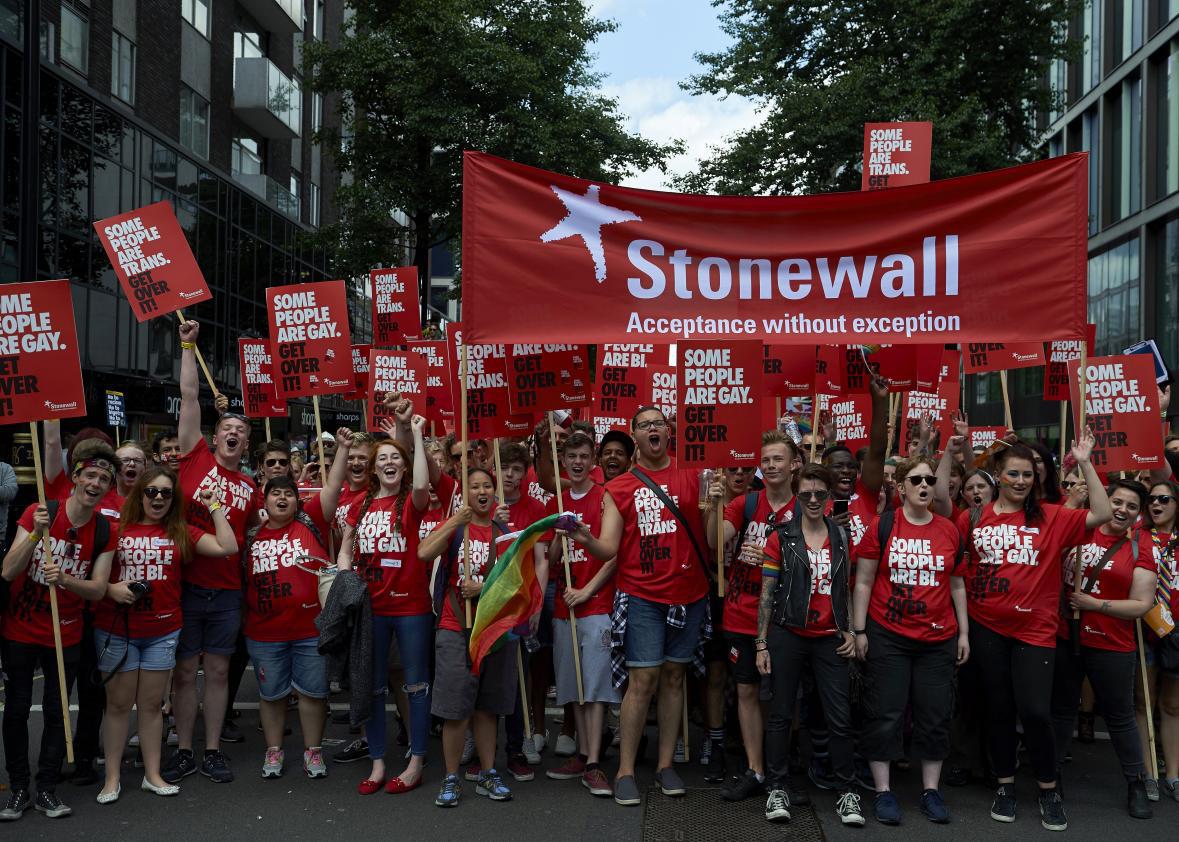Back in the 1980s, when people still affixed buttons that weren’t just miniature flags to their lapels, I often wore one with the slogan, “How Dare You Assume I’m Heterosexual.” Forget for a moment the bitchy friend who looked me up and down and declared, “As if for a minute anyone would.” The button was a necessary reminder that, for the most part, LGBTQ people were an invisible minority.
The erroneous assumption that everyone is heterosexual until proved otherwise was perhaps understandable—though still wrong—if only a tiny segment of the population was anything but het. A new survey from Britain suggests that the heterosexual assumption is less justified than ever, since the number of people who consider themselves completely heterosexual is in steep decline. It also challenges the pernicious and nonsensical debate over the existence of bisexuality.
According to the poll, conducted by YouGov, when asked to plot themselves on a seven-point Kinsey scale, 72 percent of Britons identifed as exclusively heterosexual and 4 percent as exclusively homosexual, leaving 23 percent between those two extremes. When it comes to 18-to-24-year-olds, however, a whopping 49 percent chose an option other than “completely heterosexual.”
The percentage of respondents reporting a sexual experience with a person of the same sex was still relatively small—17 percent overall—but attitudes to sexual identity and openness to bisexuality are clearly in transition.
Before we pop too many champagne corks, however, the survey also shows that the vast majority of respondents who identify as heterosexual found it impossible to imagine their ever being in a same-sex relationship. If “the right person came along at the right time,” only 3 percent said they could conceive of being attracted to, having a sexual experience with, or having a relationship with a person of the same sex. (As might be expected, the numbers were higher for women than for men.)
